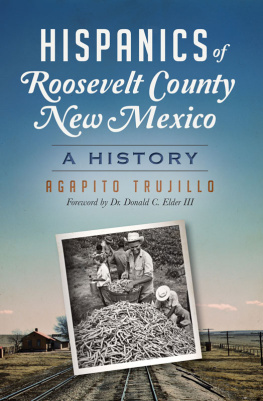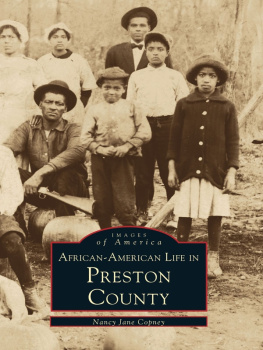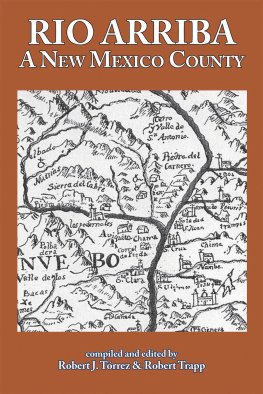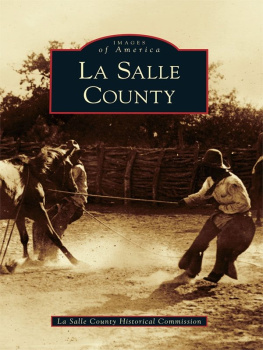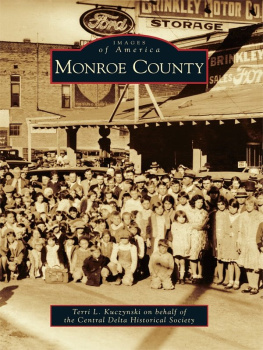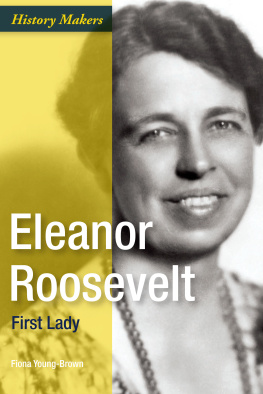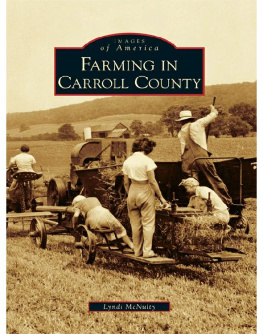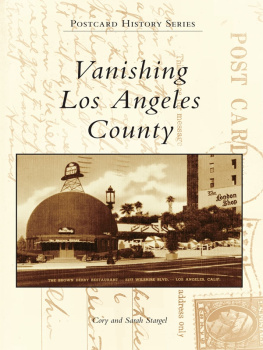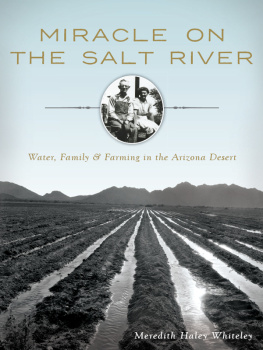


Published by The History Press
Charleston, SC 29403
www.historypress.net
Copyright 2015 by Agapito Trujillo
All rights reserved
First published 2015
e-book edition 2015
ISBN 978.1.62585.447.6
Library of Congress Control Number: 2014958078
print edition ISBN 978.1.62619.915.6
Notice: The information in this book is true and complete to the best of our knowledge. It is offered without guarantee on the part of the author or The History Press. The author and The History Press disclaim all liability in connection with the use of this book.
All rights reserved. No part of this book may be reproduced or transmitted in any form whatsoever without prior written permission from the publisher except in the case of brief quotations embodied in critical articles and reviews.
There are so many people who contributed to my efforts to put my words and thoughts on paper that I could write yet another volume expressing my gratitude. Having said that, I want to expressly dedicate my endeavors to the main group of people who began the adventure with me: my parents, Abel and Mara Soledad; my sisters Rita Ruiz and Sandra Salguero; and my brothers Abel Jr., Jos Armando and Len. Last but not least, thank you to George, who began and was a large part of my adventure, not only as brother but also as a constant (and for many years my only) companion. Georges life was cut short by a cowards bullet on the streets of Lubbock, Texas. Sadly, he didnt get to realize the fruits of our struggles. In addition, I am grateful for the support from my wife, Amelia, and five daughtersDina, Munci, Christine, Lorraine and Kimwho bore the brunt of the criticism for my actions as a police officer. In addition, thank you to the many friends and contacts on social media, such as Facebook, who encouraged me in my effort to put my memories into print. Last but not least, thank you to two persons not mentioned by name in the text: my sister Juanita Trujillo, who contracted polio at an early age and did not make the journey to Roosevelt County with us but remained with grandparents in the Santa Fe area, and Len Trujillo, who was the last member born into our family and was part of the adventure.
Contents
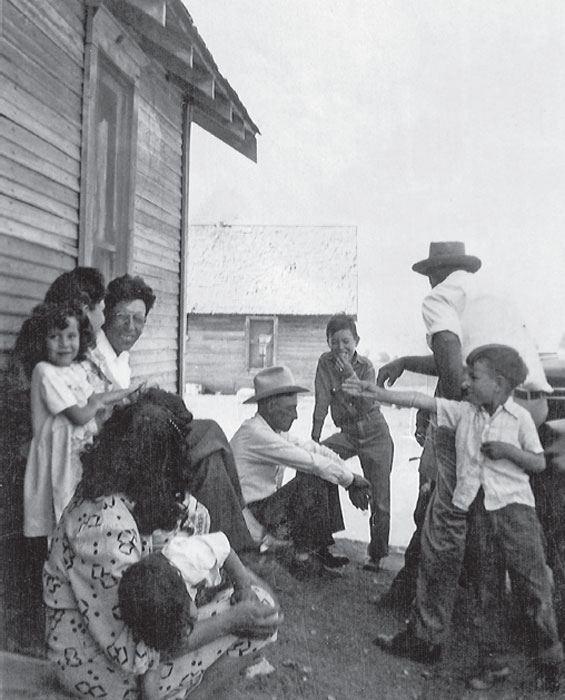
Trujillo family group. Authors collection.
Foreword
In 1540, a Spanish conquistador named Francisco Coronado led an expedition from Mexico into what is now the state of New Mexico. From that point on, New Mexico has had a definite Hispanic flavor to it. Indeed, New Mexico is today the only officially bilingual state in the Union.
Because of the efforts of Coronado and other like-minded Spaniards, the Spanish language has been heard in the region for well over four hundred years. Although this means that Spanish-speakers have composed a significant portion of the areas population since Coronados time, this fact did not always translate into those individuals being accepted within the boundaries of what would become the state of New Mexico. The original inhabitants of the area, for example, resisted Spanish incursions into their homeland, most famously in the Pueblo Revolt of 1680. While the Spanish were eventually able to reassert their authority in New Mexico, hostilities would occasionally continue to flare up between the original inhabitants and their putative rulers.
The original resistance of the natives of New Mexico to those who spoke Spanish is understandable to us in todays day and age, as those inhabitants were merely trying to protect their homeland. But unfortunately, a much more insidious resistance to Spanish-speakers would also plague New Mexico; many of the individuals who moved to the Southwest when the United States gained control of the area after the Mexican-American War brought with them a prejudice against Hispanics that would mar relations for many years thereafter.
It was into this world that Agapito Pete Trujillo was born seventy-seven years ago. Growing up in Portales, New Mexico, he faced both prejudice and discrimination. A stint in the United States Marine Corps seemed to make no difference to the non-Hispanics in his hometown. His is a story that is all too familiar to people with Spanish surnames residing in the Southwest.
At this point in his life, Pete could have been forgiven for becoming bitter toward the society that shunned him for his background. Fortunately, that was not Petes nature. Believing that he could make a positive change for himself and others like him, he chose to try to change peoples perceptions by actively engaging in his community. To this end, Pete became the first Hispanic law officer in his community and later became one of the first Hispanic schoolteachers in Portales. When he encountered latent prejudice, as he did when attempting to become a school administrator, Pete always chose to simply let his record for honesty and integrity speak for itself. In this manner, Pete prepared the way for other Hispanics to rise in the hierarchies of Portales, a process that culminated in 1998 with the election of the citys first Hispanic mayor.
It has been my great pleasure to know Pete for twenty years now. I have found him to be a man who cares about the members of his community, regardless of their background. He truly believes that New Mexico can be a model for the rest of the nation, and he decided that, by telling his story, he could help move the nation toward a better cultural understanding. I was honored when he asked me to write a foreword to his book. Pete has been an inspiration to me, and I hope I have done justice to both him and his tale of cultural transformation.
DR. DONALD C. ELDER III
Acknowledgements
I am grateful to the many people who encouraged me to write this narrative and am especially thankful for the resource people who contributed their time and expertise. Thank you to Gene Bundy and Debbie Lang at Eastern New Mexico University Golden Library Special Collections, for helping me with the acquisition and scanning of images included in this volume; Shirleen Peters, Secretary Department of Fine Arts Eastern New Mexico University, for taking time from your busy schedule to read my initial attempt at writing; Doc Donald Elder, professor of history at Eastern New Mexico University, for also taking time to read my manuscript, provide words of encouragement and write the foreword for my work; and my wife, Amelia, for being patient and supportive during your hours of isolation while I was writing. Also, a special note of gratitude goes to Christen Thompson, my commissioning editor at The History Press, without whose guidance and expertise this book would have never been launched.
Prologue
The following is not intended to be a poor little ole me sob story, for I have learned that regardless of how poor a person says he was, the next person can always come up with a better story.
That we were poor goes without saying. We didnt have the proverbial pot or window to throw it out of, but we didnt know it. To me, it was an adventure that continued throughout my life.
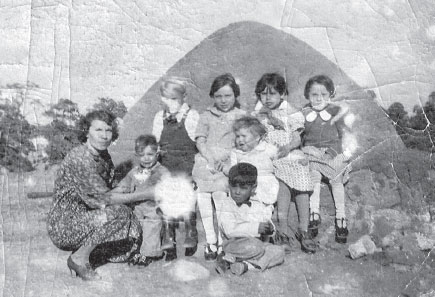
Next page
